UN Women teams up with the Embassy of Italy to Kosovo and the Ministry of Justice to address the needs of survivors of domestic and gender-based violence
In line with the G20 Agenda for 2021 and following up on the G20 EMPOWER second plenary session, which took place in May 2021, both chaired by Italy, UN Women in Kosovo, the Embassy of Italy in Pristina and the Ministry of Justice organized a joint event aimed at addressing the needs of survivors of domestic and gender-based violence in all COVID-19 economic recovery plans.Date:
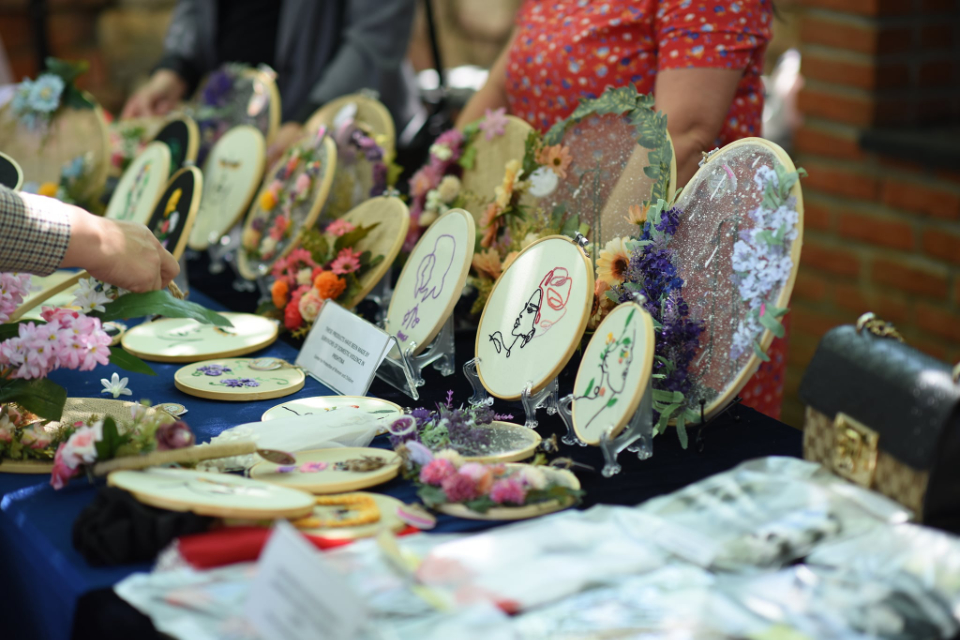
Even prior to the COVID-19 global crisis, women from vulnerable groups in Kosovo[1]were already in a disadvantaged position. Globally, the pandemic has affected women in different ways to men. For this reason, it’s important to explore the pandemic’s impact through a gender lens. A recent event organized by UN Women, the Embassy of Italy to Kosovo and the Ministry of Justice aimed to ensure that the needs of survivors of domestic and gender-based violence are at the heart of recovery decisions and processes to ensure their rights, while also recognizing their contributions, especially those of the survivors. Highlighting the urgent need for survivor’s economic empowerment, the event also brought together representatives of the eight licensed shelters in Kosovo to showcase products made by the survivors, including the story behind each product.
The event brought together ambassadors in Kosovo, representatives of Kosovo institutions, the Deputy Minister of Justice/National Coordinator against Domestic Violence, and representatives of international organizations. They shared experiences and recommendations on adopting a gender lens in economic recovery efforts for Kosovo, which would respond to the needs of survivors of domestic and gender-based violence.
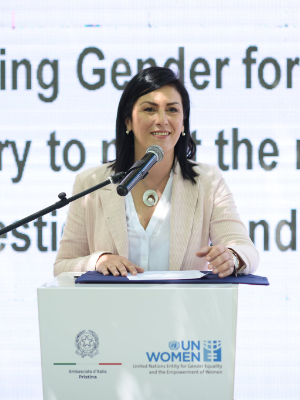
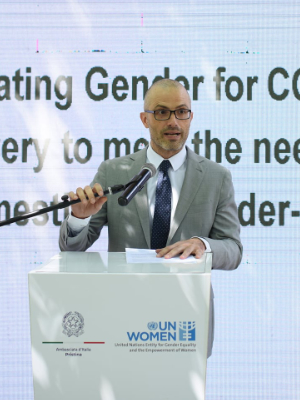
In her opening remarks, Vlora Tuzi Nushi, UN Women Head of Office stated that, “This shadow pandemic, violence against women and girls, is preventable. It requires joint efforts by all actors, resources, and developing survivor-centered policies and practices. Through ‘Generation Equality’, we aim to shape a future that dismantles the barriers to women’s progress through working across generations and sectors on priority issues.”
Speaking at the event, Nicola Orlando, Ambassador of Italy to Kosovo stated that, “COVID-19 offers us a once-in-a-generation chance to create a more inclusive society where women and girls enjoy their human rights free from violence and discrimination. Women’s economic and social rights and lives, should be at the forefront of immediate measures as well as long-term recovery and resilience plans. This event is an important catalyst to focus on the G20 agenda and its implementation in Kosovo.”
Ulrika Richardson, UN Development Coordinator emphasized, “We are at a defining moment for women and girls. The pandemic stopped the clocks of social change: Now we must accelerate! Targeted COVID-19 responses and recovery plans must take into account the needs of women and girls, especially those of survivors of domestic and gender-based violence.”
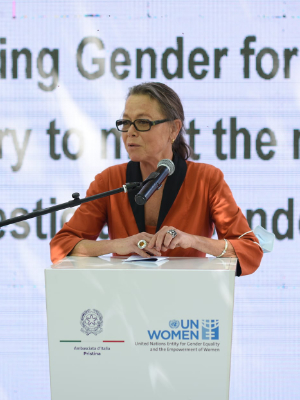
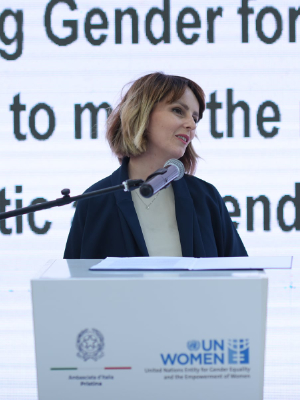
Opening remarks were also made by Nita Shala Deputy Minister of Justice, who highlighted that, “the Kosovo Government is committed to fighting against domestic violence, therefore priority should be given to the creation of legal infrastructure and a stable and predictable financing model should be established for safe houses.”
After the opening remarks a discussion was held. These highlighted the need to avoid deepening gender and other inequalities, by placing women’s economic and productive lives, as well as their economic and social rights, front and centre within immediate recovery measures. Looking to the long-term, plans for economic recovery and resilience also need to do this in line with the 2030 Agenda for Sustainable Development and the Beijing Declaration and Platform for Action.
[1] All references to Kosovo should be understood to be in the context of United Nations Security Council resolution 1244 (1999).